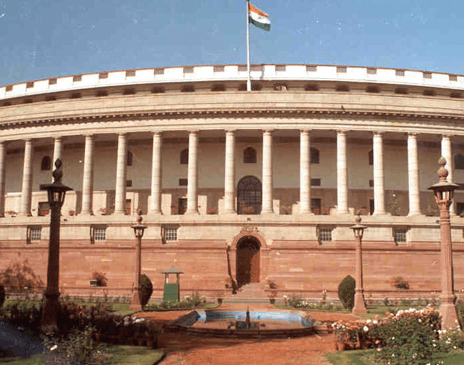Rajya Sabha passes Rights of Persons with Disabilities Bill, 2016
Rajya Sabha has passed the Rights of Persons with Disabilities Bill, 2016. The bill repeals Persons with Disabilities (Equal Opportunity Protection of Rights and Full Participation) Act of 1995.
The bill comprehensively covers a whole spectrum of problems from physical disabilities to mental illness and multiple disabilities under it. It complies with the UN Convention on Rights of Persons with Disabilities, to which India became a signatory in 2007.
Salient features of the bill
- Definition of disability: It has defined based on an evolving and dynamic concept to include 21 conditions as disable. Expands the list of disabilities from seven to 21.
- It also defines Persons with benchmark disabilities as those with at least 40% of any of the above specified disabilities.
- Speech and Language Disability and Specific Learning Disability have been added for the first time. Acid Attack Victims have been included.
- Rights of persons with disabilities: Persons with disabilities (PwDs) shall have the right to equality. They shall not be discriminated against on grounds of their disability.
- Rights include protection from inhuman treatment and equal protection and safety in situations of risk, humanitarian emergencies, natural disasters and armed conflict.
- All existing public buildings shall be made accessible for disabled persons.
- Education and skill development: It provides for the access to inclusive education, self-employment and vocational training to disabled persons.
- At least 5% seats in all government institutions of higher education and those getting aid from the government are required to reserve seats for persons with benchmark disabilities. Earlier it was only 3%.
- Employment: The Union and State governments will ensure that at least 4% of the vacancies in identified establishments are filled by persons or class of persons with at least 40% of any of the disabilities.
- The reservation must be computed on the basis of total number of vacancies in the strength of a cadre. Government can exempt any establishment from this provision of reservation.
- Legal Capacity: Disabled persons have the equal right to own and inherit movable and immovable property, as well as control their financial affairs in par with others.
- Guardianship: The district court may order guardianship to the disable person if found a mentally ill person and not capable of taking care of himself or of taking legally binding decisions.
- District level committees: It will be constituted by the State Governments to address local concerns of PwDs. Details of their constitution and the functions of such committees would be prescribed by the State Governments in the rules.
- Special Courts will be designated in each district to handle cases concerning violation of rights of PwDs.
- Central and state advisory boards on Disability: They will be constituted Central and State governments respectively.
- They will advise governments on policies and programmes on disability. The will aslo review the activities of organisations dealing with disabled persons.
- National and State Fund: It will be created to provide financial support to the persons with disabilities. The existing National Fund for PwDs and the Trust Fund for Empowerment of PwDs will be subsumed with the National Fund.
- Punishment: It provides for imprisonment ranging from six months to two years, along with a fine ranging from Rs. 10,000 to Rs. 5 lakh, for discriminating against differently abled persons.
Month: Current Affairs - December, 2016


